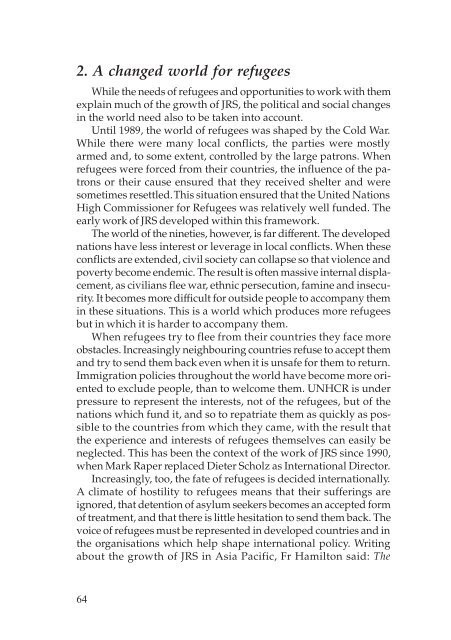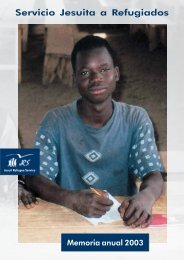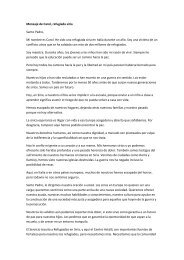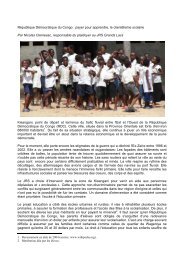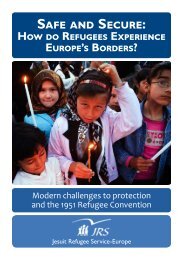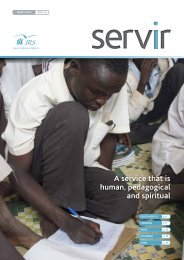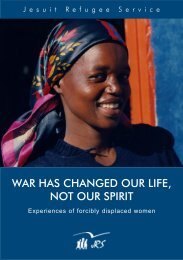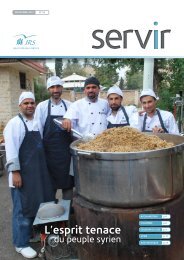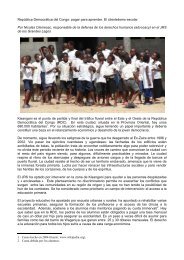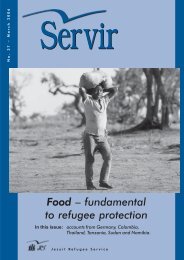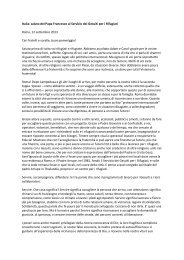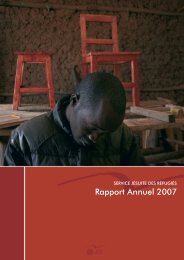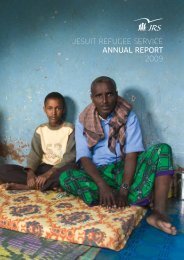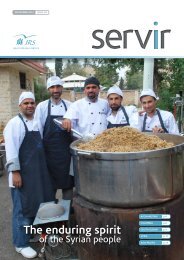EVERYBODY'S CHALLENGE - Jesuit Refugee Service | USA
EVERYBODY'S CHALLENGE - Jesuit Refugee Service | USA
EVERYBODY'S CHALLENGE - Jesuit Refugee Service | USA
You also want an ePaper? Increase the reach of your titles
YUMPU automatically turns print PDFs into web optimized ePapers that Google loves.
2. A changed world for refugees<br />
While the needs of refugees and opportunities to work with them<br />
explain much of the growth of JRS, the political and social changes<br />
in the world need also to be taken into account.<br />
Until 1989, the world of refugees was shaped by the Cold War.<br />
While there were many local conflicts, the parties were mostly<br />
armed and, to some extent, controlled by the large patrons. When<br />
refugees were forced from their countries, the influence of the patrons<br />
or their cause ensured that they received shelter and were<br />
sometimes resettled. This situation ensured that the United Nations<br />
High Commissioner for <strong>Refugee</strong>s was relatively well funded. The<br />
early work of JRS developed within this framework.<br />
The world of the nineties, however, is far different. The developed<br />
nations have less interest or leverage in local conflicts. When these<br />
conflicts are extended, civil society can collapse so that violence and<br />
poverty become endemic. The result is often massive internal displacement,<br />
as civilians flee war, ethnic persecution, famine and insecurity.<br />
It becomes more difficult for outside people to accompany them<br />
in these situations. This is a world which produces more refugees<br />
but in which it is harder to accompany them.<br />
When refugees try to flee from their countries they face more<br />
obstacles. Increasingly neighbouring countries refuse to accept them<br />
and try to send them back even when it is unsafe for them to return.<br />
Immigration policies throughout the world have become more oriented<br />
to exclude people, than to welcome them. UNHCR is under<br />
pressure to represent the interests, not of the refugees, but of the<br />
nations which fund it, and so to repatriate them as quickly as possible<br />
to the countries from which they came, with the result that<br />
the experience and interests of refugees themselves can easily be<br />
neglected. This has been the context of the work of JRS since 1990,<br />
when Mark Raper replaced Dieter Scholz as International Director.<br />
Increasingly, too, the fate of refugees is decided internationally.<br />
A climate of hostility to refugees means that their sufferings are<br />
ignored, that detention of asylum seekers becomes an accepted form<br />
of treatment, and that there is little hesitation to send them back. The<br />
voice of refugees must be represented in developed countries and in<br />
the organisations which help shape international policy. Writing<br />
about the growth of JRS in Asia Pacific, Fr Hamilton said: The<br />
64


